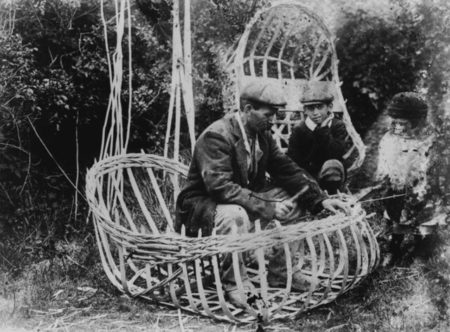-
3-minute read
-
1st March 2020
St David’s Day: 5 English Words with Welsh Origins
Happy St David’s Day! Unfortunately, Proofed doesn’t provide Welsh-language proofreading (not yet, anyway). But to mark the feast day of the patron saint of Wales, we thought we’d look at a few English words with Welsh origins. For instance, did you know these words come from Wales?
1. Bard (Bardd)
Given the musicality of Wales, a good starting point for our words with Welsh origins is ‘bard’. Nowadays, you’re more likely to hear this term used in reference to fantasy fiction (or if you’re a Dungeons and Dragons player). But a bard was originally a professional musician or storyteller.
The word comes from the Old Celtic bardos, via the Welsh bardd. And while bards were highly respected in medieval Wales – a very musical place even today – the Scottish version (bardis) was a term of contempt!
2. Coracle (Corwgl)
A coracle is a small, rounded boat. Similar designs are found all around the world, but the English word comes from the Welsh coracle (corwgl or gorwgl).

(Photo: Dyfed Cultural Services Department)
Welsh coracles were designed to be carried on your back, leading to the phrase llwyth dyn ei gorwgl. This meant ‘The load of a man is his coracle’. The notion here was that heavier coracles can carry more weight, so you need as heavy a coracle as you can carry if it is going to stay afloat!
3. Corgi (Cor Ci)
These days, corgis are most associated with Queen Elizabeth II, who has owned several. Originally, though, corgis were Welsh dogs and the word ‘corgi’ comes from Welsh! Pleasingly, it comes from the Welsh cor ci, or ‘dwarf dog’, which is a good fit for this diminutive breed!
Find this useful?
Subscribe to our newsletter and get writing tips from our editors straight to your inbox.
Subscribe to Beyond the Margins and get your monthly fix of editorial strategy, workflow tips, and real-world examples from content leaders.
4. Gull (Gwylan)
Gulls may not be the most popular birds. But they’re smart, tough, and… Welsh? The English word ‘gull’ either comes from the Welsh gwylan or Cornish guilan. Both terms come from Old Celtic, though, so perhaps try swearing like a Celt next time a sea gull steals your chips.
5. Penguin (Pen + Gwyn)
While penguins are rarely seen on the beaches of Cardigan or Barry Island, some think the word comes from the Welsh pen (head) + gwyn (white).

(Photo: MemoryCatcher/Pixabay)
This origin is far from certain, and others argue it comes from the Latin pinguis, which means ‘fat’ or ‘thick’. But we find the idea of a Welsh penguin puts a smile on our faces, so we’re sticking with the traditional etymology!
If you have any favourite Welsh words or English words with Welsh origins, why not let us know in the comments? And if you have any documents that need proofreading, we’re always here to help!




